Globally, more than 600 million people acquire mosquito-borne illnesses (malaria, dengue, Zika virus, West Nile virus, Chikungunya virus) every year. Since there is currently no known effective vaccine against these diseases, the use of plant-based repellents offers a suitable alternative for protection against mosquito bites.
Which is the best natural repellent: lemongrass or citronella? Different strains of mosquitoes would react differently with any type of repellent. In any case, both lemongrass and citronella oils are effective in controlling mosquitoes. Essential oils derived from these grasses contain active ingredients that trigger olfactory, contact, and gustatory repellency.
Knowing the dangers of mosquitoes, plant-based repellents offered a ray of hope in reducing the risk of exposure and acquiring mosquito-borne diseases. This article will provide detailed information on two commonly used repellent plants: lemongrass and citronella.
Do Mosquito Repellent Plants Really Work?
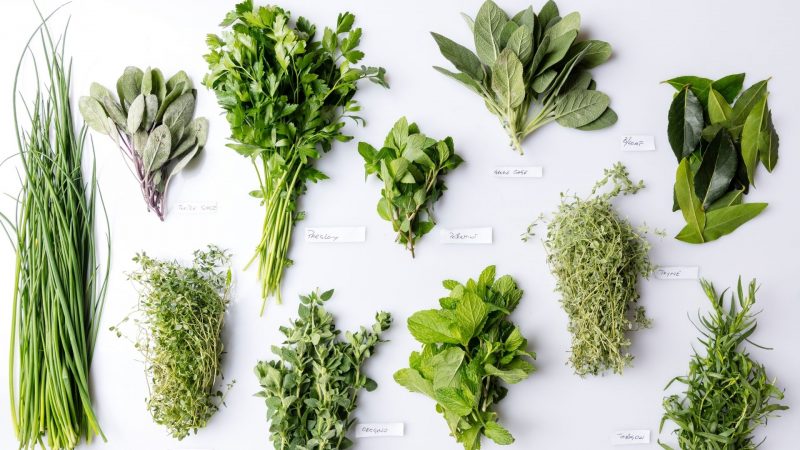
Planting repellent plants such as lemongrass, citronella, mints, lavender, and basil would not repel mosquitoes. What drives mosquitoes and other pests away are the essential oils extracted from these plants.
Oils from these plants may be extracted by crushing the leaves. In fact, these oils display repellency comparable to commercial repellents. The oils may then be directly applied to the skin for personal protection against mosquito bites. However, these oils should be used with caution as they may cause skin irritation or trigger an allergic reaction.
Some natural repellents also come in the form of candles and diffusers. When used as such, studies show that placing essential oils in a diffuser is more effective than using candles containing essential oils.
What Is Lemongrass?

Lemongrass (Cymbopogon citratus) is a member of the Poaceae (formerly known as Gramineae) family. It is a tall tropical grass, which originated in India and Sri Lanka but has also been cultivated across tropical regions such as Asia and some parts of America and Africa. Other names are citron grass; fever grass (Trinidad & Tobago); lemon grass (India & Nigeria); West Indian lemongrass (southern India and Ceylon, Sri Lanka).
This tropical grass grows in clumps that can reach a height of over 39 in (1 m) and a width of around 0.5 to 1 in (1.27 to 2.54 cm). Leaf-blade length is 18 to 36 in (45.72 to 91.44 cm). It also has numerous stiff stems that arise from a short rhizomatous rootstock. Meanwhile, propagation is done either by stem or root division. They can also be grown in containers, pots, or gardens, depending on the availability of space. These methods can be applied to the citronella plant.
The leaves are strap-like, tapered, with roughly textured edges and drooping tips. Environmental conditions influence its color, but the typical color is light to medium green.
Originally, it was used as a flavoring, particularly in Asia. To date, lemongrass is widely used as a medicinal herb, pest control, and in cosmetics and perfumery.
What Is a Citronella Plant?
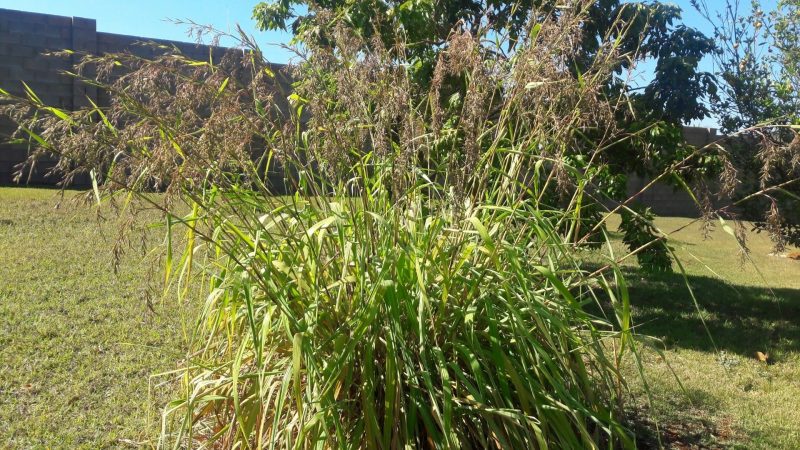
Citronella is a perennial grass, which belongs to the Poaceae family. The two most commonly known varieties of citronella grass are Cymbopogon nardus and Cymbopogon winterianus. In trade, C. nardus and C. winterianus are popularly known as Java citronella (superior) and Ceylon citronella (inferior), respectively. Other names for C. nardus variety are citronella oil (India); serai wangi (Malaysia); nardus grass, and for C. winterianus variety is Java grass (Brazil).
This grass is a clump-forming grass with bluish-green leaves and purplish-red stems arising from short rhizomatous roots. They have fibrous roots with a more extensive root system. Under favorable conditions, the clumps can grow as high as 78.74 in (2 m) and as wide as 36 to 48 in (0.91 to 1.22 m). Mature leaf length ranges from 28 to 43 in (70 to 110 cm).
It is cultivated in the tropics and subtropics, specifically in Asia and some parts of Africa and America. Citronella grass prefers a warm climate and flourishes under direct sunlight. Both species of citronella require 2000 – 2500 mm rainfall to produce high yields of oil.
In areas with cooler temperatures, citronella grass is usually grown in large pots that can be brought indoors during winter.
Citronella grass is widely known for its medicinal and therapeutic uses.
What Are the Similarities Between Lemongrass and Citronella?
Citronella and lemongrass both belong to the genus Cymbopogon and are members of the family of the grasses (Poaceae). Both of these grasses originated in the tropical and subtropical region and have been widely cultivated in Asia and some parts of America and Africa.
They are clump-forming, with long and narrow leaves and numerous stems that arise from their rhizomes. These grasses are both widely known for various uses such as in food preparation, perfumery, cosmetics, pharmaceutical, medicinal and traditional medicine. They are also both considered alternatives in controlling certain insects and pests.
What Is the Difference Between Lemongrass and Citronella?
Lemongrass and citronella are often confused with each other. Visually, citronella has a purplish-red stem, while that of lemongrass is green like the leaves.
Moreover, when crushed, the lemongrass leaves would release a lemon-like scent as opposed to the strong and pungent odor of crushed citronella leaves.
In terms of the root system, citronella has more extensive roots giving it an advantage in water and nutrient absorption. For this reason, citronella grasses survive longer than lemongrass, which will be detailed below:
| Plant | Lifespan |
| C. winterianus | 5 to 8 years |
| C. nardus | 6 to 10 years, but some reaches to about 20 years |
| C. citratus | 4 to 5 years |
Is Lemongrass Mosquito Repellent?
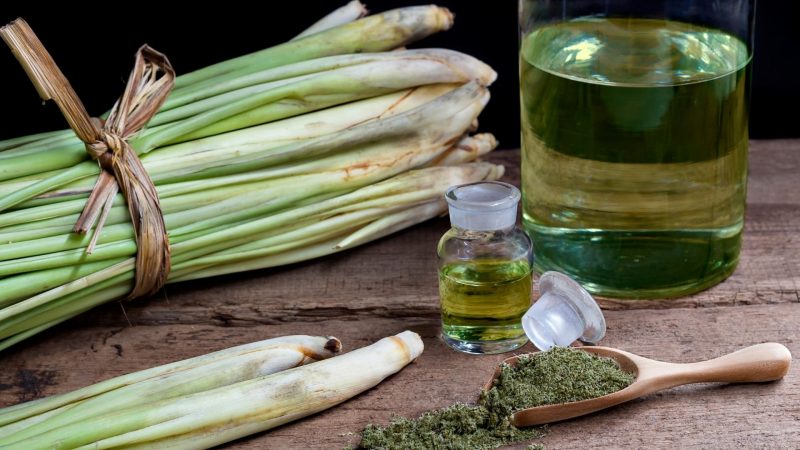
Lemongrass is among the many plants known to repel mosquitoes. However, lemongrass itself would not significantly affect mosquitoes. This repellent plant will only deter mosquitoes when leaves are crushed, and the oil extract is rubbed on the skin for personal protection.
Essential oils extracted from lemongrass could repel mosquitoes either by targeting their olfactory system or activating gustatory and other sensory systems, causing them to avoid contact.
By disrupting a mosquito’s sense of smell, lemongrass essential oil minimizes their host-seeking behaviors, and as a result, reduces people’s exposure to mosquitoes. The high repellency of lemongrass essential oil can be attributed to citral (an active constituent) and other compounds such as geraniol, linalool, and citronellal.
Commercially available products made from the formulation of lemongrass oil includes ointment and cream for topical application and organic mosquito patch, which were all successful in repelling mosquitoes.
Why Do Mosquitoes Hate Lemongrass?
Oil constituents present in lemongrass have inherent repellent and irritant qualities against Aedes aegypti and other anthropods. Mosquitoes exposed to lemongrass essential oils tend to exhibit behavioral changes such as irritancy and avoidance of contact. In higher concentrations, lemongrass essential oil has also been found to be toxic to mosquitoes.
What Other Insects Does Lemongrass Repel?
Lemongrass is not only effective against mosquitoes. The chemicals present in lemongrass essential oils were also found to be effective against the insects below:
Stable Flies
Stable flies (Stomoxys calcitrans) are livestock pests that primarily attack cattle and horses. They attack humans and pets (dogs, cats) too. These pests are harmful, especially when they attack in huge numbers, as they could draw huge quantities of blood from their victims.
Lemongrass oil is found to be effective against stable flies. In a laboratory experiment, the stable flies were recorded to have spent more time flying around the pad soaked in bovine blood but untreated with lemongrass oil. The attractiveness of the untreated pad eventually led stable flies to feed on it.
Researchers concluded that the stable flies detected the neral and citral (the active components of lemongrass oil) in the atmosphere, caused them to avoid contact with the pad treated with lemongrass oil.
However, further tests are necessary to determine if the stable flies would exhibit the same behavior in the field.
House Flies
House flies (Musca domestica L.) are not only a nuisance but are also carriers of diseases detrimental to human health.
When placed inside a jar containing cotton balls soaked in lemongrass oil – acetone solution, all house flies (100) died in only about 4.3 minutes. Moreover, behavioral changes have also been observed, such as hyperextension of the legs and abdomen.
Sandflies
Sandflies (Phlebotomus duboscqi) transmit various diseases to humans and animals. Primarily, sandflies are controlled using synthetic insecticides.
A laboratory test showed that lemongrass essential oil could effectively control sandflies. Lemongrass essential oil at 1 mg/ml elicited 100% repellency, whereas 0.75 mg/ml of essential oil provided protection for up to 3 hours.
Further studies are needed to determine the appropriate formulation that is safe for human applications.
Management of these pests often employs heavy applications of pesticides and costly sanitation services.
The overall good performance of lemongrass oil suggests that it could be chosen as an alternative control for house flies, stable flies, and sandflies, depending on availability and individual preference.
Is Lemongrass Easy to Grow?
Lemongrass is a low-maintenance perennial grass that can easily adapt to various climatic conditions. It can be grown from stem or root division. In areas with cooler climates, lemongrass is usually grown in containers. Therefore, this plant is easy to grow.
Can Citronella Repel Mosquitoes?
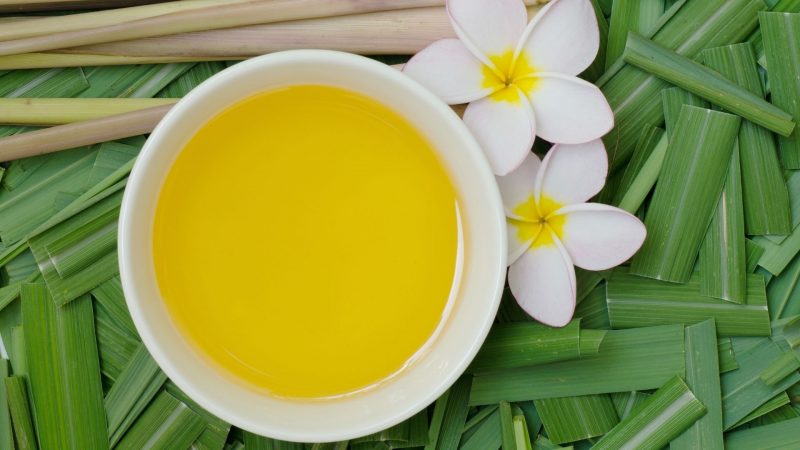
Citronella grass can repel mosquitoes. However, it must be understood that the oil present in citronella grass is the one that has the repelling ability and not the plant itself.
Simply growing the grass in your garden will not discourage mosquitoes from the area.
How Does the Citronella Plant Repel Mosquitoes?
Chemicals present in citronella essential oil keep mosquitoes at a distance by disrupting their olfactory system. In doing so, mosquitoes’ behaviors are altered, causing them to steer away from potential victims.
Is Citronella Toxic to Humans?
Citronella oil derived from C. nardus and C. winterianus were both given a GRAS (Generally Recognized as Safe) status by the United States Food and Drug Administration.
In addition, it is registered as an insect and animal repellent with the US Environmental Protection Agency, and is classified as “a biopesticide (biochemical) with a non-toxic mode”. Thus, the use of citronella oil would pose no unreasonable risks to people or the environment.
However, exposure to citronella oil may cause irritation of the skin and the eyes. It could also cause skin allergies and other reactions. Thus, it is necessary to follow the label and instructions when using products containing citronella oil.
How Do You Take Care of Citronella Plants?
Fertilizer
To achieve optimum growth, fertilizer application is necessary. Application of nitrogen at planting, usually in an NPK compound, would promote initial growth and thus shorten the first harvest time.
In addition, citronella grass also requires high potassium. Application of 40 to 60 kg of potassium per hectare is recommended. Subsequent application of nitrogen and potassium will increase both herbage and oil yield.
Water
Citronella thrives well in moist conditions; thus, plants should be watered regularly when rainfall is sparse.
Weed Control
Weed control is necessary, especially during the earlier months of cultivation. Weeds may compete with the nutrients present in the soil, which could significantly affect the growth of citronella.
Weeding is usually done manually as it is generally the most effective. Citronella plants should be kept free of weeds for 60 – 75 days after planting.
Medicinal Purposes of Lemongrass Oil and Citronella Oil
Citronella oil contains analgesic, anticonvulsant and anxiolytic properties. In some countries, citronella oil is used to treat flu, digestive (bowel, indigestion, flatulence) problems, intestinal (parasites, cramps) problems, and gastritis.
On the other hand, lemongrass oil contains antibacterial, antifungal, and antiprotozoal properties. Lemongrass oil is known as a remedy for headaches, fever, muscle spasms, and gastrointestinal disturbances.
Which Is Better Lemongrass or Citronella?
Citronella and lemongrass are both sources of essential oils, which contain active ingredients that are known to repel mosquitoes. In a laboratory experiment against three mosquito strains, essential oils derived from these grasses both showed promising results below, although the reaction from each mosquito varied.
| Essential Oil (20% oil solution) | Aedes (yellow fever vector) | Aedes (yellow fever vector) | Anopheles (malaria vector) | Anopheles (malaria vector) |
| PP (min.) | %R | PP (min.) | %R | |
| Citronella | 120 | 75.5 | 480 | 52.4 |
| Lemongrass | 180 | 70.3 | 480 | 100 |
Note: PP – protection period; %R – percentage of repellency.
Citronella showed a higher repellence ability against the yellow fever strain, whereas lemongrass elicited a higher repellence against the malaria vector. In any case, increasing the oil concentration derived from the two kinds of grasses resulted in higher repelling efficiency.
The Best Way to Keep Mosquitoes Out of Your Yard
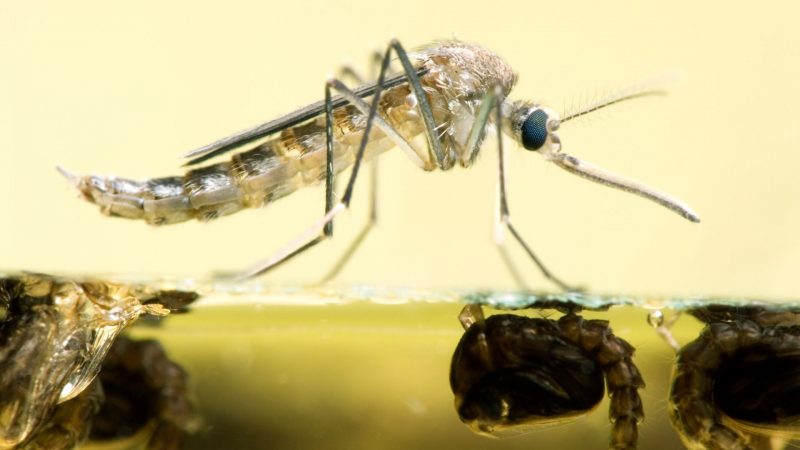
Summer is the best time to bond with family outdoors. Unfortunately, this season also provides favorable conditions for mosquitoes to breed and multiply.
The best way to keep mosquitoes out of your yard is by denying them access to food, water, and shelter. If any of these three things is not present, then mosquitoes will not survive.
Remove Mosquito Habitats
Mosquitoes breed in water even as little as an ounce. Thus, it is important to keep the environment clean by eliminating standing water.
Yard debris such as soda cans, rain buckets, unused garden pots, or any other container can host a wide range of mosquitoes. Getting rid of these clutters will discourage mosquitoes from taking shelter in your yard.
Water can also accumulate in rain gutters and downspouts. Hence, it is important to always keep them free of leaves and twigs that could obstruct the flow of water.
Cover All Gaps
Keep mosquitoes from entering your homes by blocking all potential entry points. Eliminating breeding sites outdoors might force mosquitoes to look for the same indoors. Thus, it is important to repair damaged and broken windows to keep mosquitoes out.
Outdoor Sprays
Spraying would minimize the number of mosquitoes in your area. This is done by using either foggers/aerosols or insecticidal sprays. The difference is that foggers kill mosquitoes in the air, whereas sprays are applied on surfaces (cool, shady, and moist areas) that potentially provide shelter for mosquitoes.
Use these products safely by following the instructions on the label.
Related: Best Mosquito Foggers | Top Choices for Effective Pest Control!
Mosquito Traps
The use of mosquito traps is also one of the ways to eliminate mosquitoes in your area. These traps use carbon dioxide and UV light that attract mosquitoes and kill them as they come in contact.
Personal Protection
Using essential oils is a low-risk alternative to synthetic insecticides. Essential oils may be applied directly on the skin for personal protection or may be placed in a diffuser.
Follow label instructions for topical application as this may cause skin irritation and other reactions.
Hire a Professional
Hire professional applicators to treat mosquito resting sites in your area.
Summary
Planting repellent plants itself won’t deter mosquitoes as the active ingredients used to repel the insects are present in their oils.
In general, lemongrass and citronella oils are both effective against mosquitoes. The use of these natural repellents is considered eco-friendly, low-risk, inexpensive, and readily available alternative for protection against mosquitoes.
To control mosquitoes in your area, you can use one or a combination of the methods described in the previous section of this article, depending on what’s available.
Related: 9 Best Indoor Mosquito Repellent Plants for Every Household
List of Sources
Baker, B., Grant, J. (2018). Lemongrass Oil Profile. Cornell University.
Kime, L. (2012). Soil Quality Information. The Pennsylvania State University.
Merchant, M., et al. (2016). Do-It-Yourself Backyard Mosquito Control. Texas A&M AgriLife Extension Service.
Can Fragrant Plants Help Repel Insects? (2018). Mississippi State University.
Oil of Citronella. (1997). United States Environmental Protection Agency.
- How to Get Rid of Turtles | Proven Long-Term Solutions! - August 26, 2023
- How to Get Rid of Kingsnakes | Easy & Humane! - August 26, 2023
- How to Get Rid of Northern Water Snakes | Best Solutions and Preventative Measures! - August 19, 2023
